Jammu and Kashmir completed 1825 days (five years) without an elected government on June 19, 2023. With impressive tourist footfall, minimal militancy and not a single strike in many years, the political class is seeking an early election, a demand unlike to be accepted very soon. The administration, however, has started the process for local body polls later this year, reports Masood Hussain
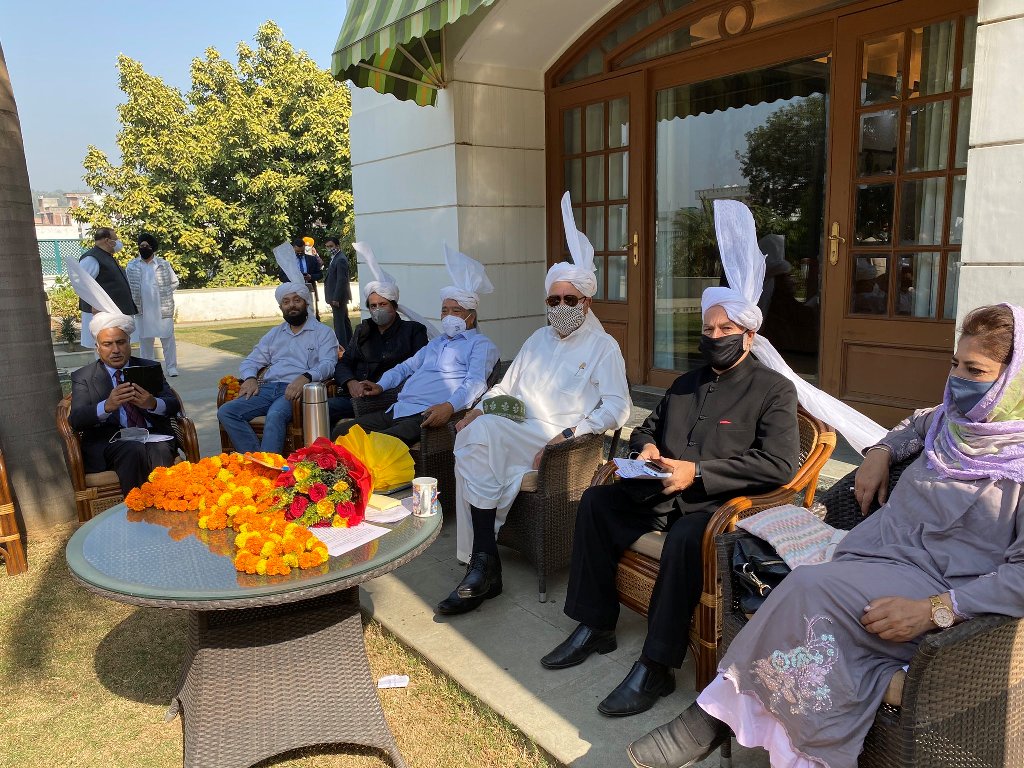
“Democracy is in our veins, it is in our culture’; ‘India is the mother of democracy’; ‘India is the temple of democracy’. Great sounding words that the international community lap up & regurgitate ad-nauseam,” National Conference leader and former Chief Minister, Omar Abdullah put his sarcasm in a tweet on June 19, 2023, that marked the completion of five years of Delhi’s direct rule on erstwhile Jammu and Kashmir state. “Meanwhile J&K completes 5 years under central rule today. Democracy ends where J&K begins.”
Mehbooba Mufti, the last Chief Minister, who was in a meeting when her principal secretary conveyed to her that she is no more head of the state as BJP, her ally, has withdrawn the support, avoided commenting on the anniversary. However, many of her deputies used formal and informal ways to speak.
“Entire nation & its leadership must hang their heads in shame for calling itself “Mother Of Democracy”, Mohit Bhan, one of her party’s spokespersons tweeted. “J&K languishes under the central rule for a staggering 5 years, with the last election held 9 years ago. The blatant disregard for people’s rights & representation is appalling.”
“June 18, 2018, was the last day of democracy in J&K, Ladakh,” Naeem Akhter, one of her close party leaders tweeted. “Five years of direct rule in J&K have been marked by disappointment and a growing divide between Delhi and Kashmir. Instead of bridging the ‘Dil ke duri and Delhi ki duri,‘ direct rule has only widened the gap.”
Frequent Central Rule
Barring a few governments in Jammu and Kashmir that disagreed with the centre on certain issues, almost every leader tried to be in good books of the 7-Race Course Road. Still, Jammu and Kashmir had eight instances of landing into the centre’s remote rule for one or the other reason. Post-1947, the Government of India ruled Jammu and Kashmir directly for nearly 14 years.
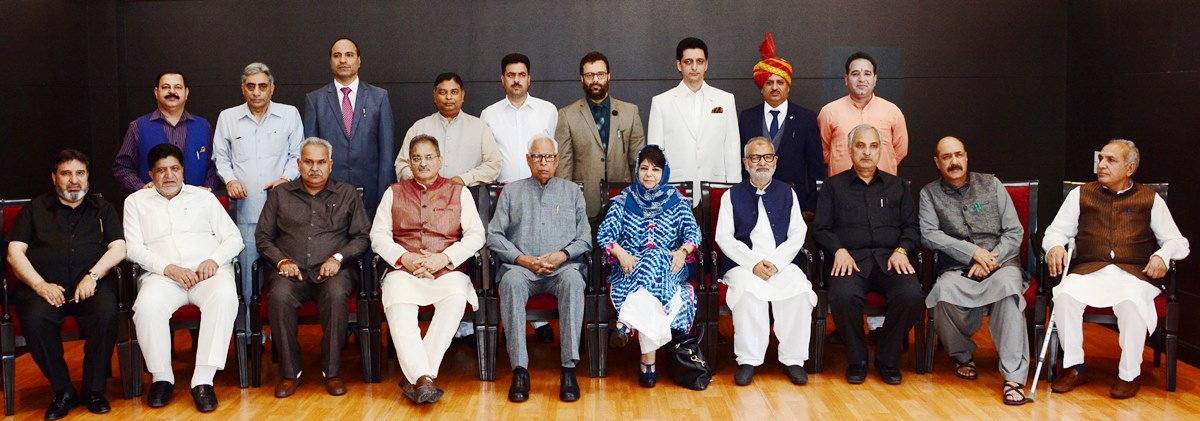
However, two spells of direct rule have been very long. The first, was when Dr Farooq Abdullah resigned on January 18, 1990, in protest against the appointment of Jagmohan Malhotra as the governor. His appointment by none other than Mufti Mohammad Sayeed, then Home Minister, was a major intervention that added to the prevailing chaos in Kashmir. Dr Abdullah returned as Chief Minister on October 9, 1996, after six years and nine months of a long spell of governor’s rule.
The next protracted spell started on June 19, 2019, when Mehbooba Mufti resigned after her ally, BJP pulled out of the ‘polar’ alliance. Jammu and Kashmir continue to be under the governor’s rule and the indications suggest it would match, if not cross the last spell. So far, there is no indication of an assembly election in Jammu and Kashmir.
Two Long Spells
The two gubernatorial regimes, however, are completely different, and, in more ways, contrarian to each other. In the last spell that started in the 1990s, the government in Delhi was desperate to have an elected government in place in Jammu and Kashmir. The successive governments put in all efforts to assemble the political forces across ideological and political lines to get them back home, mobilise the masses and push them towards an election. They were asked to mend fences with each other as it was in the national interest.
That was a different era. “One day, Dr Farooq Abdullah invited all of us to an outing to Gulmarg,” one NC leader, who was a former minister, said. “There, we saw a group of people busy cutting grass. I went to talk to them and they fled.” He said the people were “unwilling to even talk” and that was the reason why the political forces were also not so happy to pay for the costs.
The government in Delhi offered the political class every facility required for reconnecting with the people. They were given security and accommodation, and their movement was facilitated. In order to give them something to sell to the people, they were assured of autonomy with the sky as the limit. This gave them the advantage to move out and revive the broken bonds with the people. They had actually lost the connection as the eruption of militancy in 1990 led them to flee Kashmir. Holding an election in the worst militancy of the era was a gigantic exercise that cost too many lives as militancy was at its peak. The situation was horrifying as nobody knew if Kashmir was supposed to open or stay closed.
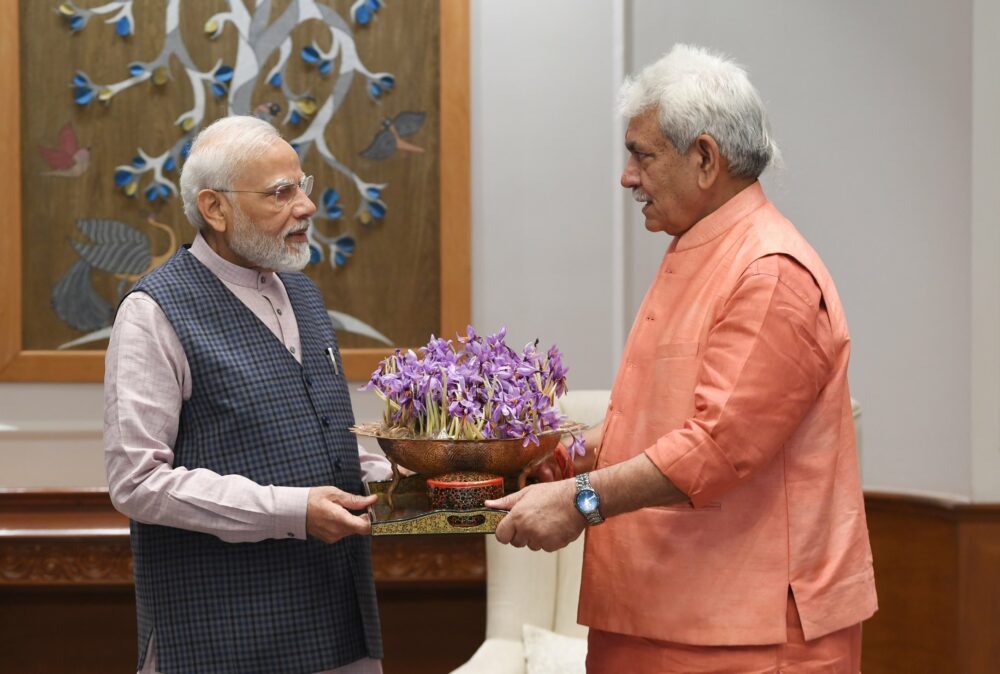
The ongoing spell of the remote rule, however, is a complete reversal. The people and the political class want an election. Apparently, the militancy has ebbed to an all-time low. The peace on the ground is so visible that Kashmir has broken all records in tourist arrivals. There has not been a strike for a single day in many years now.
The political forces are in disarray. PDP, the erstwhile No 2 political party in Kashmir is surviving with a fraction of the leaders that were in its frontline in 2018. When the Mehbooba government was pulled down by its ally, it had 28 MLAs. So far, 19 of them have deserted the party. Its leaders have flocked into Peoples Conference, an old political party that Sajad Lone is reviving to make a pan-Kashmir formation, and Apni Party which was born post-2019. While 12 of its MLAs have joined Apni Party, three were in PC and all others are fence-sitting.
Kashmir, unlike Jammu, has too many political parties and so many Chief-Minister-hopefuls. Ghulam Nabi Azad, a veteran Congress leader, who resigned from the Congress and floated Jammu and Kashmir Azad Democratic Party, is busy consolidating its position in Kashmir and the Muslim belts of Jammu.
Increasingly, sections within the political class are claiming systemic and systematic interventions that prevent the transaction of the politics that had evolved in Jammu and Kashmir. While one former Chief Minister was investigated for the secret funds’ expenditure, another is facing music in the cricket money embezzlement.
This has created a situation in that politics is more visible on Twitter than on the ground. Most of the political class of Kashmir was behind bars post-2019 and it was after 289 days when the Prime Minister, Narendra Modi invited them to an all-party meeting. Nothing much happened in the meeting barring a group photograph, those who participated in the meeting admit.
Notwithstanding all the factors supportive of the resumption and revival of the political process, a general belief in Kashmir’s political class is that the Government of India is apparently unwilling to hold elections right now.
The Net Difference
Happenings within the twin long spells offer a much bigger basket of the differences the two remote rules denote. Till 1996, the Government of India ensured that Jammu and Kashmir survives as an entity with equal, if not more rights than any other state in the union enjoys. On occasions, the government moved the extra mile to ensure that more people get jobs, and have access to good education without compromising on counter-insurgency.
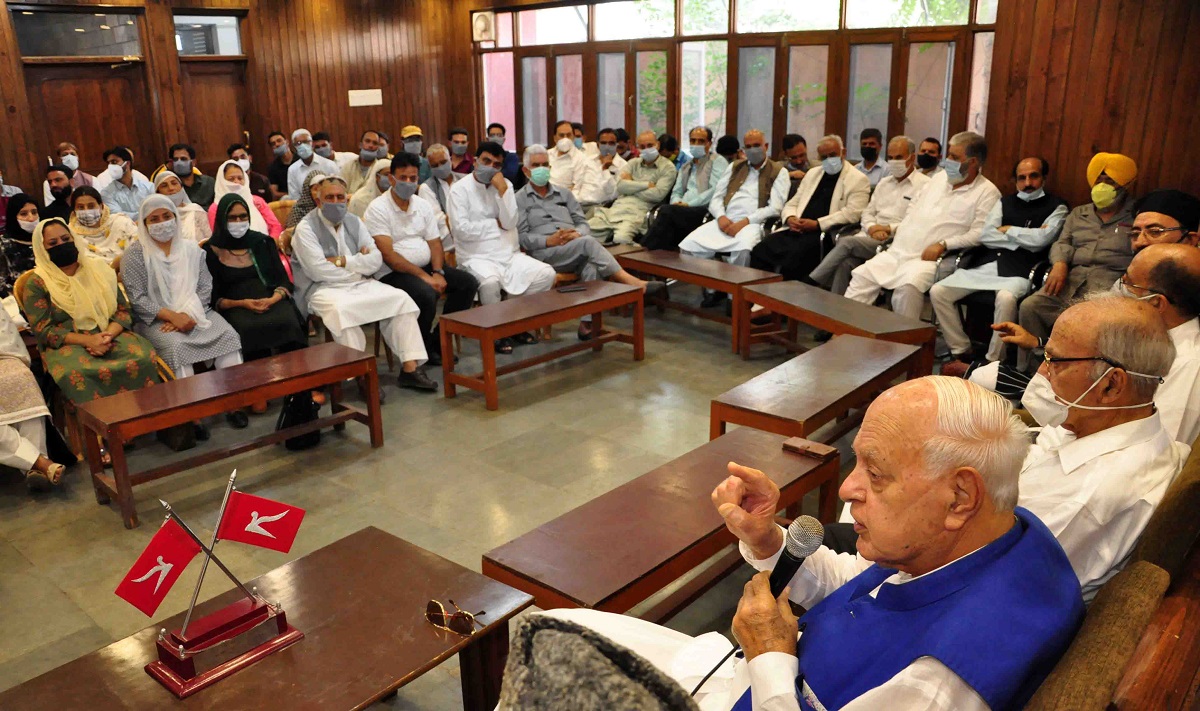
The ongoing spell witnessed the reading down of Article 370, and Article 35A, the unprecedented disintegration of the state into a union territory and its bifurcation with Ladakh becoming another UT without an assembly. Jammu and Kashmir is now ruled under the central laws as its own constitution became history. A new delimitation of the assembly seats was made for assembly as well as Lok Sabha.
In the last five years, Naeem Akhter said “very serious attempts” were made to “undo the previous seven centuries of the cultural and intellectual evolution of Kashmir”, something that lacks precedence in the past 70 years. He said “taking away the land rights and jobs” is one part of it.
The Ladakh Scene
Initially happy over the UT status, Ladakh is more vocal and has mended the fences between the two districts to run a pan-Ladakh movement for its rights. They are seeking a full-fledged state, restoration of their rights to have jobs in the government and Schedule 6 protecting their culture.
They had one round of dialogue with the Home Minister and then there stalemate. After around 22 months, the stalled dialogue between restored on June 20, 2023, when the leaders of the region were granted an audience by Nityanand Rai, Jr Home Minister.
In the nearly 2-hour long meeting, reports suggest the Ladakh leaders demanded their 4-point agenda should be included in the High Powered Committee (HPC) constituted by MHA last time. The agenda included the grant of Statehood, implementing the Sixth Schedule in Ladakh, two Lok Sabha seats (instead of one) and job opportunities for the natives with the Ladakh Resident Certificate (LRC) mandatory for all kinds of recruitments. They suggested the extension of JKPSC to Ladakh on the pattern of the High Court. Leaders said they got no assurance on the inclusion of statehood and the Sixth Schedule in the agenda for the next meeting.
New Naya Kashmir
The government in Srinagar and Delhi, however, see the last five years as the beginning of a new Naya Kashmir in which “hurdles on the path leading to the holistic development of Jammu Kashmir” as Lt Governor, Manoj Sinha said, were “removed”.
“Earlier J&K was called the hotspot of terrorism but today it is a hotspot of tourism and progress. Last year, a record 1.88 crore tourists visited Jammu Kashmir and I am confident it will cross 2.25 crore this year,” Sinha told members of the Institute of Chartered Accountants of India, who flew to Srinagar for a meeting. “The speed of our work has increased 10 times in comparison to the period before 2019. New aspirations have been born in the society, new resolutions have arisen among youth and in Amrit Kaal, J&K is at par with developed states on many parameters of development.”
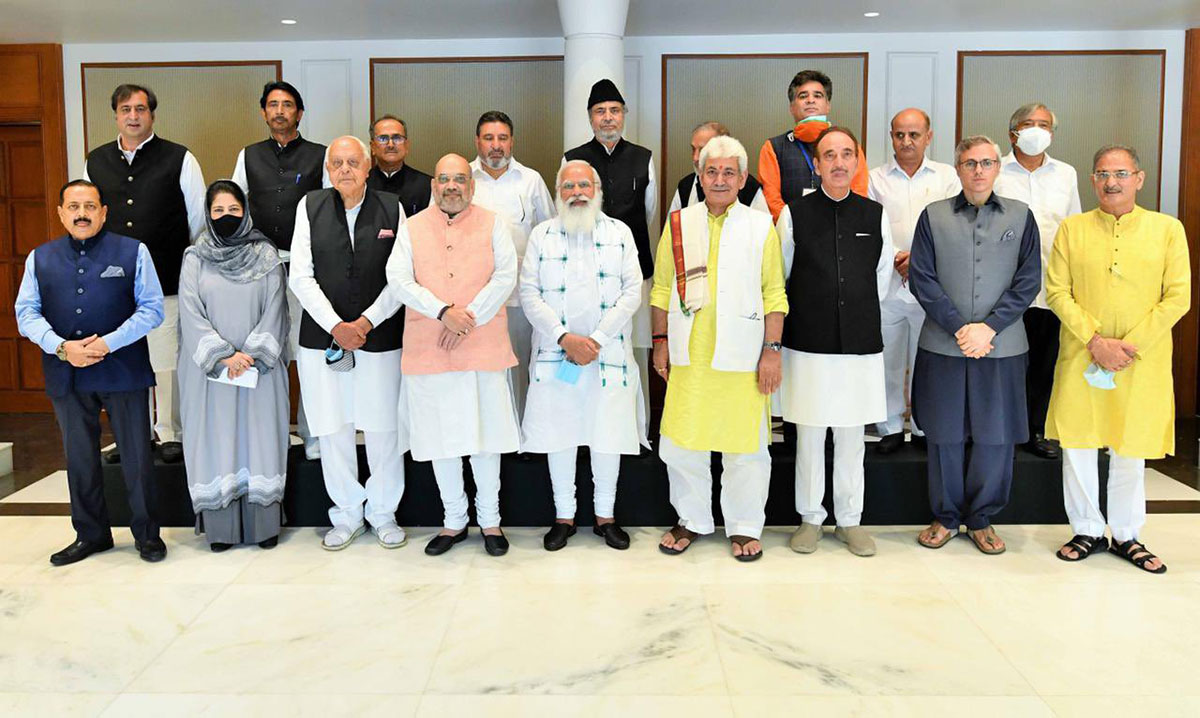
While the claims about job creation, fast-paced development, improved public spending and investments are increasingly being disputed by the political class, there are many things that are very visible in Kashmir. Right now, no government employee is taking his attendance for granted; they usually avoid getting into the political debates; deadlines are set and met; the writ of the government runs large; direct banking transfer is the new norm; digitisation of the office is near complete and the aggressive chase of the smaller projects is visible.
The government is linked “success” of the governance by invoking the number of Bollywood crews who flew to Kashmir for shooting songs, flicks and documentaries. Sinha said around 300 small and big movies were shot in Kashmir in one year. However, the politicians said that Bollywood’s Kashmir relations are age-old. “The number is high because it is linked with the money that the government is offering as doles to the producers under the film policy,” one politician said. “Kashmir was getting many more crews before the 1990s without the government booking even a penny of expenditure.”
“Nobody knows how a sensitive border state like Jammu and Kashmir is managed by a minimal governance structure,” a former Congress minister said. “Once having governments with more than 20 ministers and having embarrassing deficits, Jammu and Kashmir is now being managed by literally one person – the Lt Governor.” That is perhaps why it is being referred to as a Khap Panchayat.
An Election-Ready JK
Interesting and intriguing is that there is no single parameter that is visibly missing from an ideal situation conducive to elections. “Delimitation Commission has completed its task. Updated electoral lists have been published,” Sinha said as early as March 2023. “There are Constitutional bodies in the country for certain tasks. It is the Election Commission which has to take the decision on Assembly elections in J&K. Whenever the Commission decides, the administration is ready to hold elections.”
It was almost the same assertion that BJP’s Jammu and Kashmir president Ravinder Raina made in Srinagar in response to Omar Abdullah’s statement. “A couple of days ago, former chief minister Omar Abdullah accused us (the BJP) of running away from elections,” Raina told a cheering crowd in Srinagar on June 17, two days ahead of the fifth anniversary of the fall of the last elected government. “The BJP is ready for the polls – be it assembly, Lok Sabha or local body polls. I request the EC to announce the dates for elections as early as possible.”
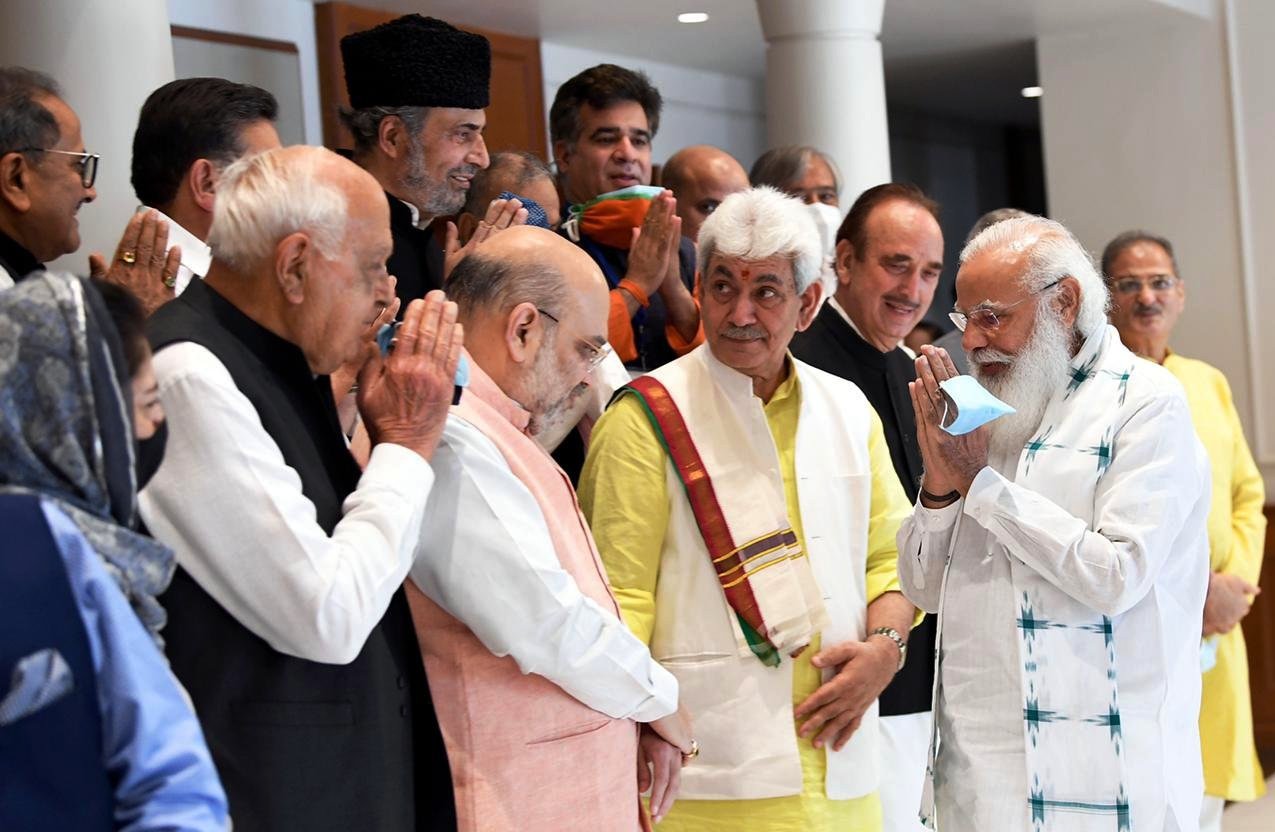
Omar Abdullah, who still insists in public meetings that he will not be contesting the polls, has been asking a very plain question – if Jammu and Kashmir can have Lok Sabha polls and the local body polls, why it cannot have assembly elections?
“The fact is if BJP has a strong footing in the region, assembly elections would have taken place in Jammu and Kashmir by now,” Omar said. “These people are running away from the election because they know that they will lose badly in Kashmir as well as in Jammu.” He insisted: “People who are sitting as kings, have got power without election, these people are ruling here without any election and this is our misfortune.”
Petitioning ECI
Interestingly, the political class from Jammu and Kashmir once flew to Delhi and had detailed interactions with the Election Commission of India. “Jammu and Kashmir is without a legislative assembly and an elected government for the last five years. In disregard of the letter and spirit of the Constitution, an unrepresentative and unaccountable bureaucracy is allowed to run the government to the discomfort and inconvenience of the general public,” the delegation’s representation to the ECI on March 16, 2023, said.
“People of 13 parties met here today and agreed that the Statehood of J&K should be restored. We all are together on the issue of why elections are not being held in J&K when the situation has normalised,” Dr Abdullah said, after the all-party meeting. “We, the signatories to this memorandum representing different political parties of J&K and various national political parties, implore and request the ECI to announce the Assembly elections in J&K without any further delay and notify the election schedule so that the democratic rights of the people of J&K and access to democratic institutions is restored.” They pointed out that Panchayat elections cannot be a substitute for legislative Assembly elections. The last election for the assembly was held in 2014.
Accompanying Jammu and Kashmir parties to the ECI, however, did not cut the ice between the non-BJP camp and the Kashmir parries. Omar Abdullah recently exposed the hypocrisy that key opposition parties exhibited when August 5, 2019, happened.
“There were these four parties (the DMK, Trinamool Congress and the CPI(M) and CPI ) which supported us… Name a fifth… Those who are making noises of ‘Save the Constitution’ and ‘Save Democracy’, where were they when there was democratic murder (in J&K)?,” Omar said in Jammu. “They didn’t speak a word, they even supported it.” By the way, Dr Farooq Abdullah had indicated in too many words that his party will be part of the grant anti-BJP alliance.
Later, in the meanwhile, Harsh Dev Singh, a former minister from Udhampur went to Supreme Court seeking polls in Jammu and Kashmir.
Chief Election Commissioner Rajiv Kumar on Wednesday said the revision of electoral rolls in Jammu & Kashmir doesn’t disturb the schedule or conduct of polls and the poll body is aware that there is a vacuum in the Union Territory which needs to be filled.
On March 29, the CEC told a presser that the Commission was aware that “there is a vacuum in Jammu and Kashmir which needs to be filled.” That was the last thing the Commission talked about Kashmir.
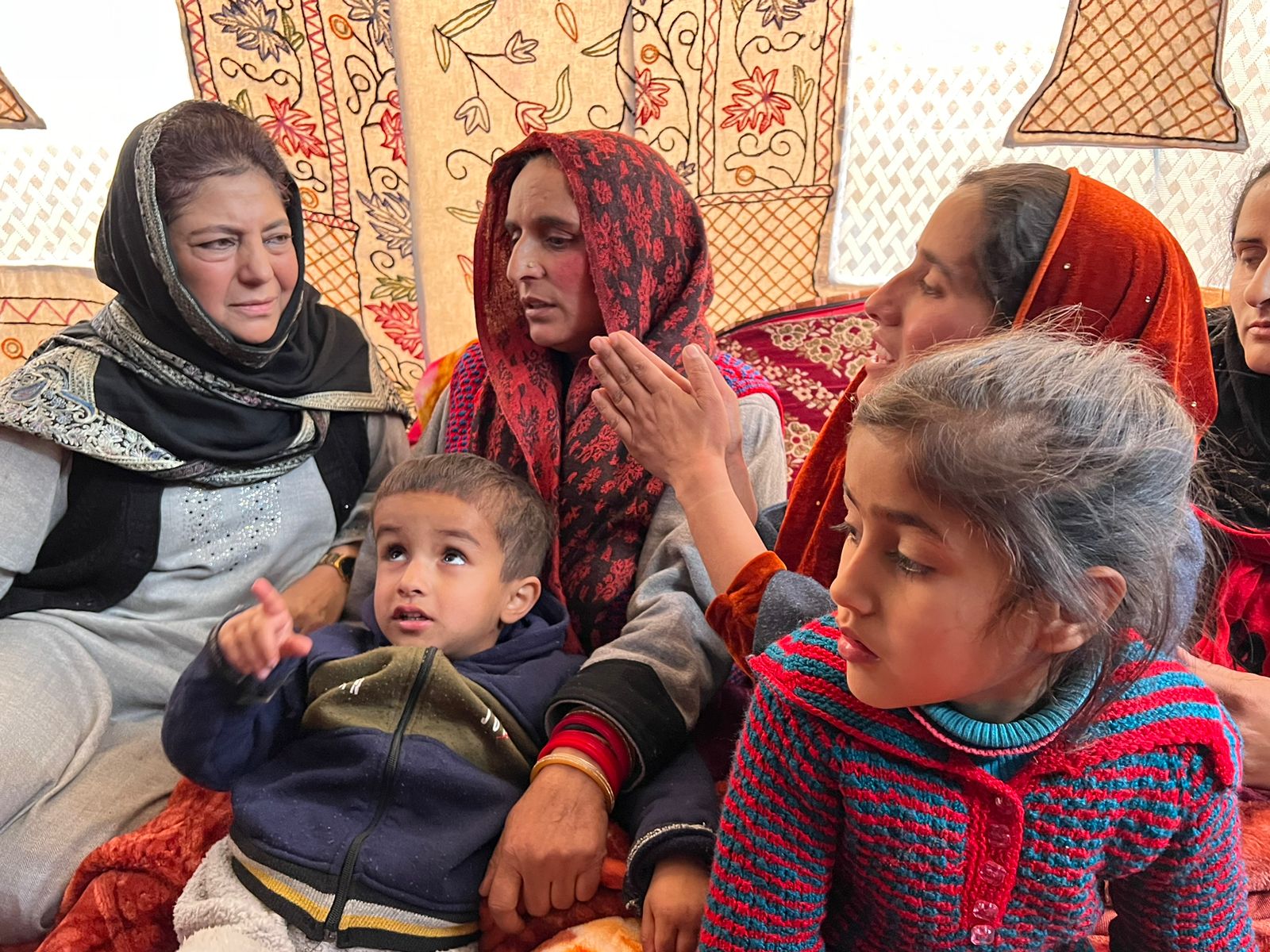
Municipal Polls
Interestingly, the Jammu and Kashmir administration is excited that they are holding the municipal polls, for which the process has already started. The Housing and Urban Development Department has already appointed a Nodal Officer for the conduct of forthcoming municipal elections in Jammu and Kashmir. The term of the municipal set-up is ending in October and November.
The last polls were boycotted by most of the major political parties so the people from the margins of the political class emerged in a low poll situation. The government enjoys a lot of clout in this class of “leadership”. This time, however, the political class is taking these polls more seriously.
The administration is so happy with the Panchayat-ULB-DDC set-up that it is being argued to be a democracy in itself. During the G20 meeting in Srinagar, when a reporter asked Jitendra Singh, a BJP minister, if the G20 can happen in Srinagar, why not the political process can resume, the Jammu politician almost lost his cool. “Political process is already going on. We have DDCs (district development councils) in place, BDCs (block development councils), panch and sarpanch councils. Is that not part of the political process to you?” he said. “You should compliment us, Narendra Modiji, that district councils were introduced after 70 years.”
Division within BJP
Notwithstanding the public utterance, the BJP is working on a different plan. “You need to transform from a period where you needed to deal with the problems of lack of development or confined development,” a “senior Union government functionary” told The Indian Express insisting that the removal of Articles 370 and 35A was one process. “Then you needed to bring in development and now you see that development. Then you have to make sure that development itself involves the democratic process.” He told the newspaper that “early J&K polls” would mean putting on “reverse gear” the UT’s ongoing development works worth hundreds of thousands of crores, which will be visible to the people.”
The report talked about a dichotomy on the issue as a senior BJP leader told the newspaper that said the government wants to be “a little more confident” about winning the people over as it does not want them to gravitate towards “anti-national elements”. So the “nearest possibility” for Jammu and Kashmir elections falls after the 2024 Lok Sabha polls.
The Nay Sayers
As in every other society, there are nay-sayers. Within the political class, there are people who insist that there is no requirement for elections because “even if we win, what we will be able to do?”
One politician currently fence sitting said that Jammu and Kashmir is changed beyond recognition. “Even if people not happy with this situation register a victor and get into the assembly, what will they be able to do?” he asked. “We are not a state and the UT is run like a municipality.”
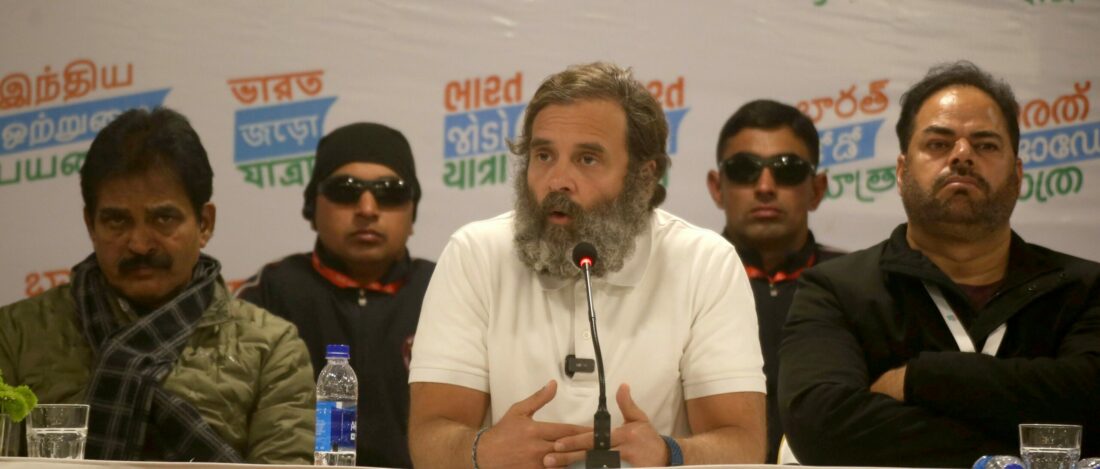
While in assembly, the Jammu and Kashmir lawmakers will have to fight a protracted battle for their rights and privileges. Interestingly, post-2019, they are precariously placed between two ambitious, if not formidable, forces. On ground zero is the Sarpanch and Block Development Council leader – both having the ambition to be the lawmaker of the area? Around him, if not over him, is the District Development Council leader, having bigger ambitions.
Interestingly both the ladders are well-funded. In the case of Panchayat, more than a few thousand crores are directly landing in the basic tier. “This would add to a lawmaker’s instability and increase his vulnerability,” the politician said, insisting that though the constitution permits polls for Lok Sabha, assembly and Panchayat, in Jammu and Kashmir the “extra-constitutional” DDC was helped overgrow in such a way that it can overshadow many others. Is this the reason that Omar does not wish to contest?
A majority of the political class, however, insists the pessimism in certain sections is the outcome of the “horrible” situation. “Let us start with local body polls and see what is happening on the ground,” one former minister said. He is unwilling to comment on the fact that finally, the entire political class is on the same page as Home Minister Amit Shah started on August 5, 2019, by insisting that statehood will be restored and elections will take place. The only difference between him and the Kashmir politicians is that he knows the “appropriate time” unlike them.















